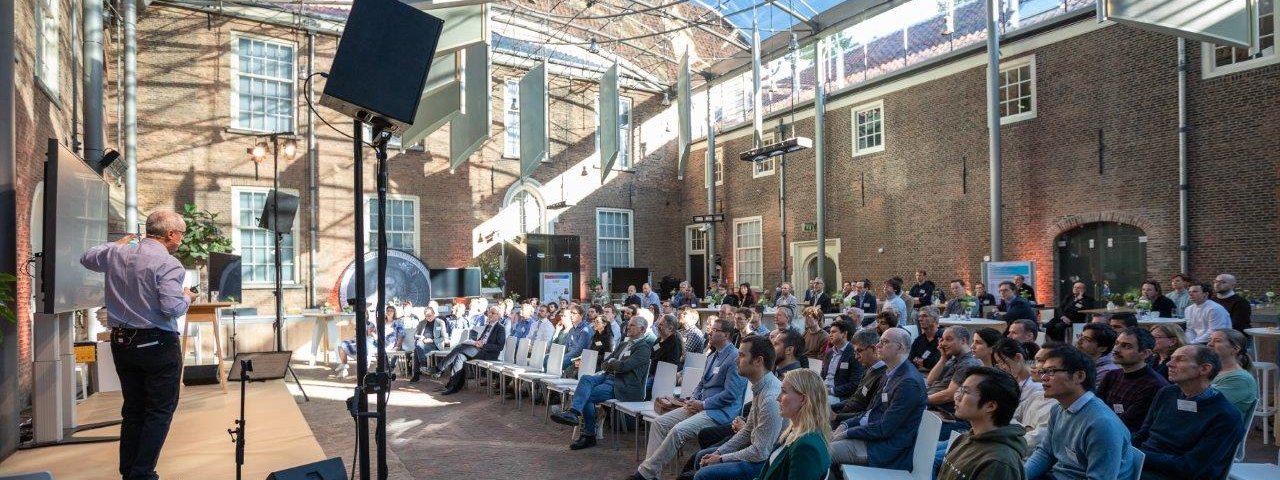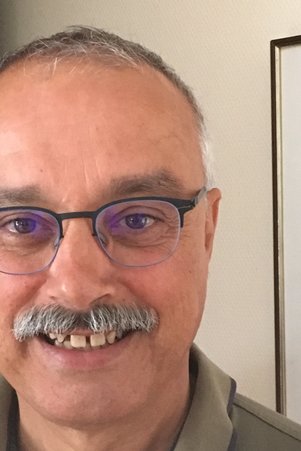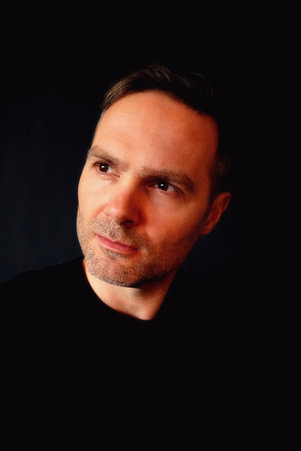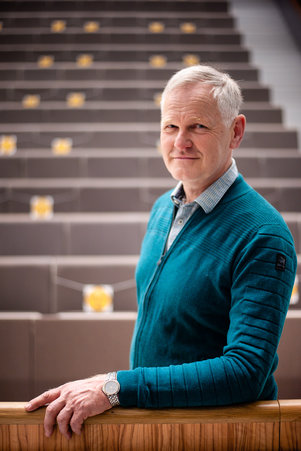The Art of Scientific Computing
30 september 2022 09:00 t/m 17:00 - Locatie: Prinsenhof Delft | Zet in mijn agenda
The art of scientific computing, an event to celebrate the launch of the DelftBlue supercomputer and the 5th anniversary of the TU Delft Institute for Computational Science & Engineering, took place on September 30, in the Prinsenhof in Delft.
The programme featured prominent speakers in the field of HPC and CSE. Confirmed speakers: combustion pioneer Jacqueline Chen from Sandia National Laboratories; Henk Prins, Manager R&D at MARIN and Zoltán Perkó, computational physicist & AI researcher at TU Delft working on medical applications. A special component of the programme was a performance by prominent artist Jeroen van der Most who creates art from data and algorithms.
Speakers
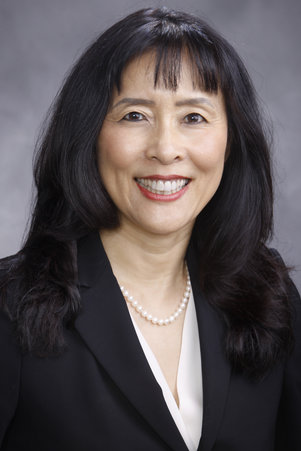
Sandia National Laboratories
Jacqueline H. Chen is a Senior Scientist at the Combustion Research Facility at Sandia National Laboratories. She has contributed broadly to research in turbulent combustion elucidating turbulence-chemistry interactions in combustion through direct numerical simulations.
To achieve scalable performance of DNS on heterogeneous computer architectures she leads an interdisciplinary team of computer scientists, applied mathematicians and computational scientists to develop an exascale direct numerical simulation capability for turbulent combustion with complex chemistry and multi-physics. She is a member of the National Academy of Engineering and a Fellow of the Combustion Institute and the American Physical Society. She is an Associate Fellow of the AIAA. She is member of the Council for the American Association for the Advancement of Science.
She received the Combustion Institute’s Bernard Lewis Gold Medal Award in 2018, the Society of Women Engineers Achievement Award in 2018, the Department of Energy Office of Science Distinguished Scientists Fellow Award in 2020, and the R&D100 Award for the Legion Programming System in 2020.
Patrick R. Amestoy received his Ph.D. in computer science (option scientific computing) from Toulouse INP (France) in 1990. From 1991 to 1992 he was a post-doctorate research fellow at CERFACS (Toulouse, France). Since 1992 he has been working at Toulouse INP and is full professor since 2004. Between 09/1999 and 09/2000 he was scientific visitor at the Lawrence Berkeley National Laboratory (Berkeley, USA).
Group leader of the Parallel Algorithms and Optimisation team (https://www.irit.fr/departement/calcul-intensif-simulation-optimisation/equipe-apo/) at IRIT (University of Toulouse-France) between 2004 and 2017, and first vice dean of the Toulouse INP University between 2012 and 2016, since January 2019 he is on a sabbatical leave from the university to work full time in Mumps Technologies SAS, which he co-founded.
Mumps Technologies (http://mumps-tech.com/) is a spin-off located at Ecole Normale Supérieure of Lyon (ENS-Lyon), dedicated to research and development, services and training around the MUMPS solver (general purpose parallel sparse linear solver) freely available on http://mumps-solver.org/.
His research interests are high performance computing, sparse linear algebra and graph theory.
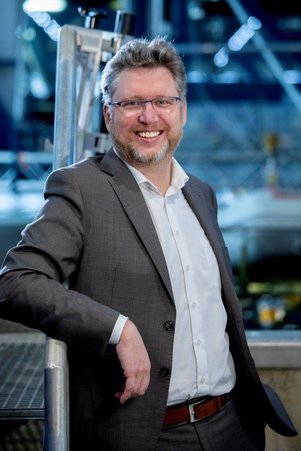
Henk Prins
Henk Prins studied Applied Mathematics at Delft University of Technology, and graduating in the field of Mathematical Physics . He then focused on numerical modelling of ship motions in waves, completing a PhD in Delft in 1995. He moved to MARIN, where he become involved in software development, of both and user interfaces. He specialised in numerical performance of numerical simulation tools on both supercomputers (CRAY XMP and YMP) and PC’s.
He managed the software development department for 6 years, while managing large projects on full-mission bridge simulators and on design tools. Since 2007 he manages the R&D department of MARIN. This department is mainly focusing on advanced numerical tools and their validation with experiments. Within both capacities, Henk has been the driving force to establish and expand the dedicated MARIN super computers.
Henk is heavily involved in European research projects, and has lead two large projects on ship propulsion. He chaired the European research association “Vessels for the Future”, bringing together all maritime stakeholders, such as yards, suppliers, research institutes, academia, and class societies. In 2017, Vessels for the Future merged into the newly launched Waterborne Technology Platform, that is defining a research agenda for the whole waterborne sector, which includes inland and maritime transport, blue growth, and ports and logistics. Henk was the first chairman of this Waterborne TP association from 2017 until 2021. In that capacity, he was instrumental in setting up the co-Programmed Partnership "Zero-Emission Waterborne Transport" within the framework of Horizon Europe.
At national level, he participated in setting up research roadmaps such as “De Nationale Wetenschapsagenda”. He has been member of the external review committee for all academic mathematics bachelor and master programmes in the Netherlands in 2019.
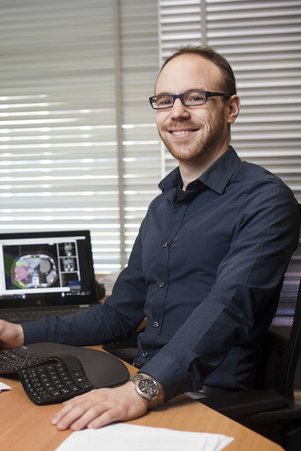
Zoltán Perkó
Zoltán Perkó
Zoltán Perkó is an associate professor of computational physics and deep learning, and a recognized expert of their use in healthcare radiation applications. Zoltán received his master’s degree in physics from Budapest University of Technology and Economics in 2010 and his PhD with cum laude distinction from Delft University of Technology (TU Delft) in 2015. After 2 years as postdoctoral fellow at Massachusetts General Hospital and Harvard Medical School, he established his own research group at TU Delft, pursuing unique research by leveraging state-of-the-art physics simulations with the power of artificial intelligence (AI), focusing on unsolved computational challenges in cancer care.
Zoltán and his team work on improving all aspects of radiotherapy, including dose calculations, handling uncertainties and optimizing treatments. Their goal is to realize the full potential of charged particle therapies: clinically feasible online - and ultimately real-time – adaptive treatments offering maximal efficacy with minimal side-effects. Within the new Biological Intervention Optimization AI Lab Zoltán is also looking beyond the state-of-the-art, developing computational and AI tools to biologically tailor irradiations.
Zoltán has successfully raised >1.7MEur funding for his research, including an NWO VENI award, and grants from KWF and international industrial partners. His work is regularly being published in top medical, computational and AI journals. Via close collaborations with Dutch, European and international radiotherapy and proton centers, Zoltán’s computational tools are already being used in clinical settings, having direct societal impact. His work allowed deriving practical robustness recipes to ensure safe and effective proton treatments, and his group’s latest result - an AI-based millisecond speed dose engine - represents the current state-of-the-art in transport calculations.
Jeroen van der Most
Dutch artist Jeroen van der Most, or shorthand Most, has created art with data, algorithms, and artificial intelligence for over 10 years. His current focus is on using AI to deepen the relationships with our natural surroundings. To benefit the ecosystems of tomorrow. He is a frequent international keynote speaker about his art and vision on technology.
Van der Most’s art was covered by media like TheNextWeb, Artnet, GQ mag, VPRO Tegenlicht, The Art Newspaper, El Pais, and NRC. He creates artworks autonomously, but also developed pieces for- and together with organizations as NVIDIA, Sogeti – Cap Gemini, Amnesty International, Radboud University, AUAS, the Jumbo-Visma cycling team, NH hotels, and housing-website Funda.
His artworks range from purely digital images to interactive installations and to date were obtained by worldwide collectors and New Zealand’s national museum Te Papa. They were exhibited at locations as ZKM Karlsruhe, Dutch Design Week, NEMO studio, Museum De Lakenhal, Amsterdam KunstRai, and AAF Hong Kong.
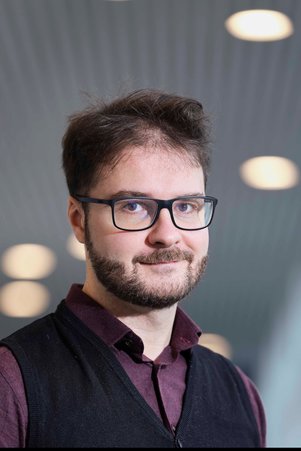
Ivan Langella
Dr Ivan Langella is an Assistant Professor in Sustainable Aircraft Propulsion at the faculty of Aerospace Engineering at TU Delft, and his main research focus is currently on the development of ultra-low emissions hydrogen fuelled systems. He obtained his Master degree in Aerospace Engineering from the University Federico II of Naples, Italy, in 2011, and his PhD in Mechanical Engineering from University of Cambridge, UK, in 2016, after a research period spent at Yale University. Since then, he has worked as a postdoctoral associate at the University of Cambridge until June 2018 on advanced combustion systems of aeronautical interests in collaboration with Rolls-Royce and DLR Germany. From June 2018 to April 2020 he has worked as Lecturer in Thermofluids science and Engineering at Loughborough University, UK, before joining the research group in Delft.
Dr Ivan Langella has been a non-stipendiary fellow of the Robinson College in Cambridge from 2016 to 2018 and a member of the Rolls-Royce UTC in Combustion System and Aerothermal Processes from 2012 to 2020. He is currently a member of the Combustion Institute, the American Society of Mechanical Engineering, the Dutch Association for Flame Research (NVV), and a fellow of the Higher Education Academy.
Kees Vuik has obtained his MSc in Applied Mathematics at the TU Delft in 1982. He finished his PhD in Mathematics at Utrecht University in 1988. Thereafter he started as Assistant professor at the Delft University of Technology and became full professor in Numerical Analysis in 2007.
Currently, he is Chair of the Delft Institute of Applied Mathematics (DIAM), Director of TU Delft Institute for Computational Science and Engineering (DCSE), and Scientific Director of the Delft High Performance Computing Centre (DHPC).
His research consists of three topics: discretization methods for partial differential equations, fast and robust solvers for systems of (non)linear equations, and high performance computing algorithms for the previous mentioned topics. He has published more than 200 papers in international journals. In 2021 he became Officer in the Order of Oranje Nassau and in 2022 he received the Best Professor Award 2022 from the TU Delft.
Programme
| 09:15 | Welcome and registration |
| 10:00 | Welcome by morning chair Fred van Keulen, dean of 3mE |
| 10:05 | Opening by Maaike Zwart, alderman (STIP) of the municipality of Delft |
| 10:15 | Sparse Linear Solvers: key tools for High Performance Computing and Simulation by Patrick Amestoy |
| 10:55 | Computational science and deep learning for health by Zoltán Perkó |
| 11:25 | Coffee break |
| 11:50 | Rule the waves: simulations for zero-emission and zero-accident shipping by Henk Prins |
12:30 | Lunch break with an (art) fair of posters and animations |
13:45 | Welcome by afternoon chair Lucas van Vliet, dean of EEMCS |
| 13:50 | High-Fidelity Simulation Towards Understanding Combustion and Emission Characteristics in Ammonia/Hydrogen/Nitrogen-Air Flames for Zero Carbon Power Generation by Jacqueline Chen |
| 14:30 | Introduction collaboration DelftBlue and artist Jeroen van der Most by Ivan Langella |
| 14:40 | Breaking boundaries with creative AI by Jeroen van der Most |
| 15:20 | Coffee break |
| 15:40 | Computational Science and Engineering in Delft by Kees Vuik |
| 16:20 | Closure by Lucas van Vliet |
| 16:30 | Drinks & bites |
